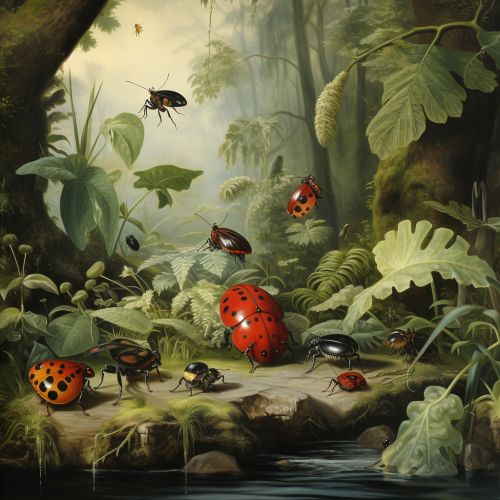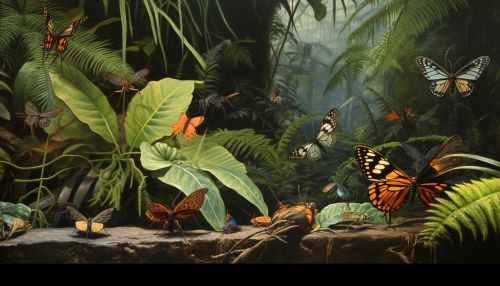Insect Ecology
Introduction
Insect ecology is the scientific study of how insects, the largest group of animals on Earth, interact with their environment and other organisms. This field of study is crucial in understanding the role of insects in ecosystems and their impact on human activities.


Insect Diversity and Distribution
Insects are the most diverse group of organisms on Earth, with over a million described species and many more yet to be discovered. Their diversity is reflected in their wide range of sizes, forms, and life histories. Insects inhabit virtually every terrestrial and freshwater habitat on Earth, from the deepest caves to the highest mountains, from the Arctic tundra to the desert dunes, and from the rainforests to the grasslands.
Insect Life Histories
Insect life histories are incredibly diverse, ranging from simple, direct development to complex, indirect development with multiple stages and metamorphosis. Some insects, such as mayflies, have a lifespan of only a few hours, while others, like the queen ants and termites, can live for decades.
Insect Behavior and Social Structure
Insects exhibit a wide range of behaviors, from solitary to highly social. Some insects, such as bees, ants, and termites, live in complex societies with division of labor and cooperative care of offspring. Others, like many beetles and moths, lead solitary lives.
Insect-Plant Interactions
Insects interact with plants in a variety of ways, including herbivory, pollination, and seed dispersal. Many insects, such as butterflies and moths, rely on specific host plants for their survival and reproduction. In turn, many plants depend on insects for pollination and seed dispersal.
Insect-Animal Interactions
Insects also interact with other animals, including as prey, predators, parasites, and mutualists. Many birds, bats, and other insectivorous animals rely on insects as a primary food source. Insects also serve as hosts for a variety of parasites and parasitoids, including other insects, mites, and nematodes.
Insects and Ecosystem Services
Insects provide a variety of ecosystem services, including pollination, decomposition, and pest control. These services are crucial for the functioning of ecosystems and for human well-being. For example, insects pollinate many of the crops that we rely on for food, and they help to break down dead organic matter, recycling nutrients back into the ecosystem.
Insects and Human Society
Insects have a complex relationship with human society. On one hand, they provide crucial ecosystem services, such as pollination and decomposition. On the other hand, some insects are pests that damage crops, spread diseases, and cause other problems. Understanding insect ecology is crucial for managing these pests and for conserving beneficial insects.
Conservation of Insects
Insect conservation is a growing field of study, driven by concerns about the decline of insects and their ecosystem services. Conservation efforts focus on protecting insect habitats, reducing pesticide use, and promoting practices that benefit insects, such as planting native plants and creating habitat diversity.
